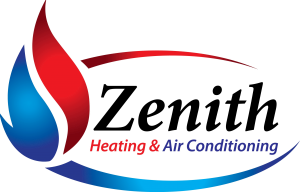Why Furnace Maintenance is Important
Regular furnace maintenance is crucial for ensuring your heating system operates efficiently and safely. Neglecting maintenance can lead to decreased performance, higher energy bills, and even potential safety hazards. By investing in routine maintenance, you can prolong the lifespan of your furnace and ensure a comfortable indoor environment.
What Does Furnace Maintenance Include?
Furnace maintenance typically involves the following tasks:
- Inspection of Components: Checking parts like the heat exchanger, burners, and blower motor for wear or damage.
- Cleaning: Removing dust and debris from the furnace and ducts to improve air quality and efficiency.
- Filter Replacement: Changing or cleaning air filters to ensure proper airflow and reduce strain on the system.
- Thermostat: Ensuring the thermostat is accurately reading temperatures for optimal comfort.
- Gas Pressure and Leak Check: Verifying that gas pressure is within safe limits and checking for leaks.
- Safety Controls Testing: Ensuring all safety mechanisms are functioning properly to prevent hazards.
Benefits of Regular Furnace Maintenance
- Improved Efficiency: Regular maintenance helps your furnace run more efficiently, leading to lower energy bills.
- Extended Lifespan: Keeping your furnace in good working condition can significantly extend its operational life.
- Enhanced Safety: Routine checks can identify potential safety issues, such as gas leaks or carbon monoxide concerns, keeping your home safe.
- Consistent Comfort: Maintenance ensures even heating throughout your home, eliminating cold spots and maintaining a comfortable environment.
- Fewer Repairs: Regular servicing can catch minor issues before they escalate into major, costly repairs.
Risks of Overheating Your Furnace
When a furnace overheats, it can lead to significant damage not only to the unit itself but also to other components. Here’s how overheating can affect your system:
- Direct Damage to the Heat Exchanger: Overheating can cause the heat exchanger to crack, which can lead to dangerous gas leaks and carbon monoxide exposure. A damaged heat exchanger often requires costly repairs or complete replacement.
- Impact on Air Conditioner Coil: If your furnace overheats, it can affect the cooling coil of your air conditioning system. This may lead to inefficiencies during the summer months and increased wear on the system.
- Indirect Effects on Other Components:
Ignitor: Excessive heat can cause the ignitor to fail prematurely, leading to ignition issues.
Gas Controller: Overheating can strain the gas controller, affecting its ability to regulate gas flow and potentially leading to unsafe operating conditions.
Inducer Motor: The inducer motor, responsible for venting exhaust gases, can overheat and fail, resulting in system shutdowns and safety concerns.
Blower Motor: An overheating furnace can also damage the blower motor, leading to inadequate airflow and discomfort in your home.
How Often Should You Perform Maintenance?
It’s recommended to schedule furnace maintenance at least once a year, ideally before the heating season begins. This allows for thorough inspections and necessary adjustments to prepare your system for the colder months. In addition, if you notice any unusual noises, odors, or fluctuations in temperature, you should contact a professional immediately.
Conclusion
Regular maintenance is essential not only for optimizing performance but also for preventing dangerous overheating and the resulting damage to your furnace and associated systems. Ensuring that your furnace operates within safe temperature ranges protects your investment and keeps your home safe and comfortable.
